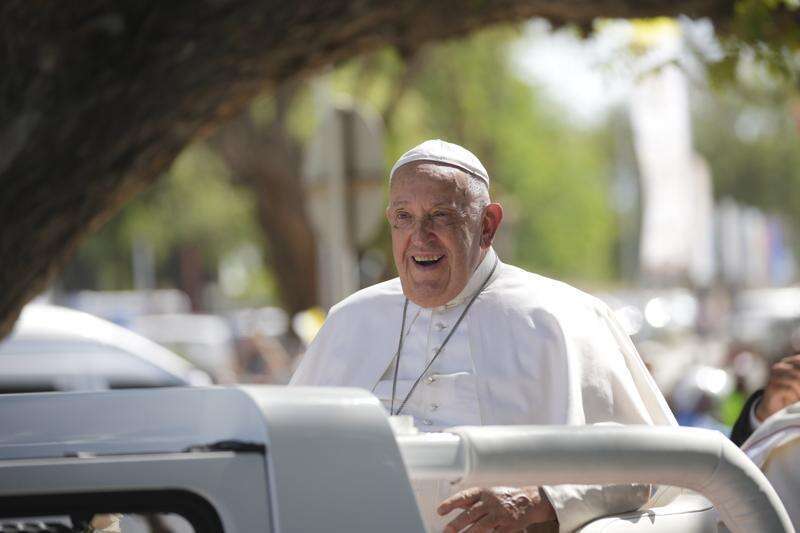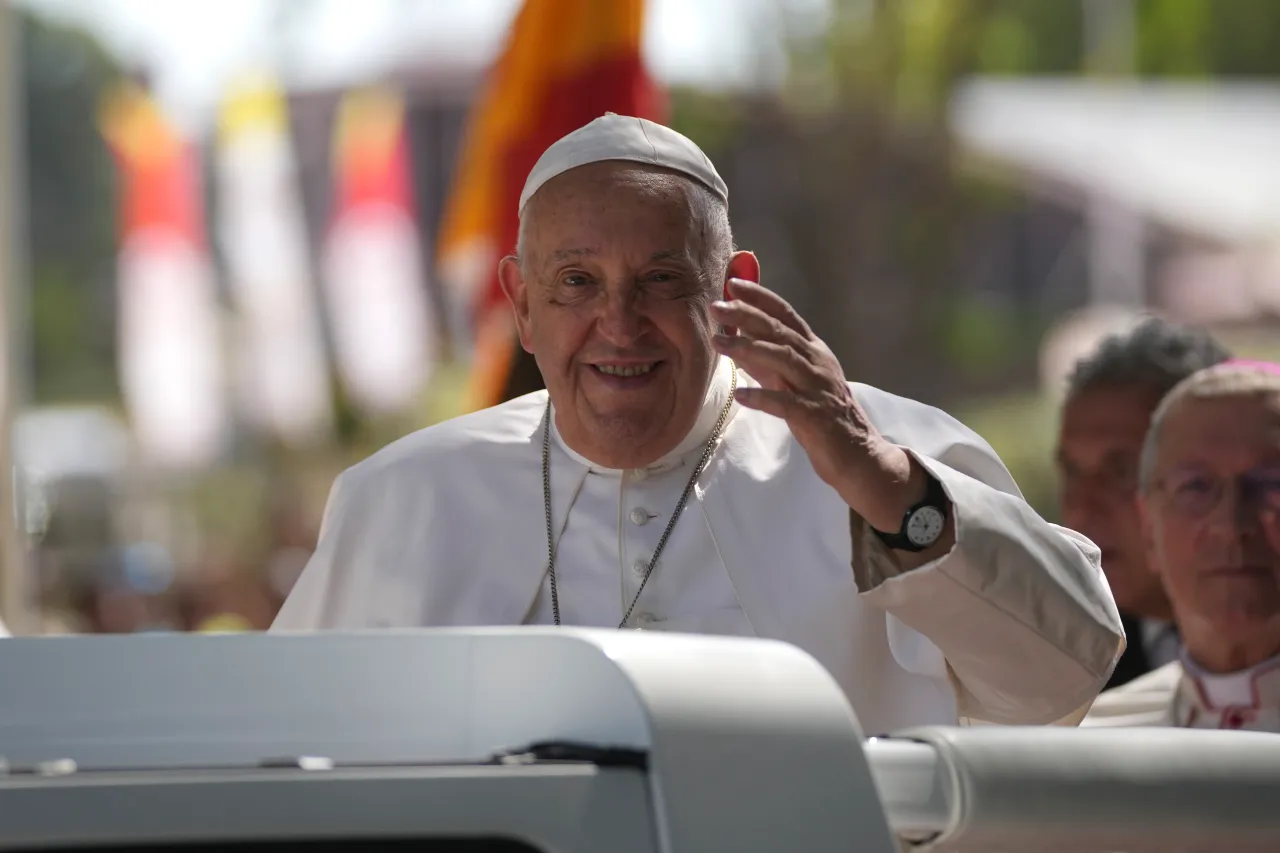Pope Francis received an overwhelming welcome in East Timor, one of the most Catholic countries in the world, as nearly half of its population gathered for an open-air Mass. The 87-year-old pontiff’s visit to the Southeast Asian nation was part of his broader tour of Asia and the South Pacific.
Approximately 600,000 people crowded the streets of the capital, Dili, eager to catch a glimpse of the pope. Many arrived early, braving the sun with yellow and white umbrellas, the Vatican’s colors, while others waited in place for more than 12 hours before the event began.
The Mass featured a mix of local customs, with traditional dances performed for Pope Francis and prayers delivered in local dialects. The pope, addressing the crowd in Spanish, spoke through a translator in Timorese, which further endeared him to the attendees.
He made light-hearted comments about the crocodiles found in East Timor, referencing the traditional belief that they represent ancestors, while also warning the crowd about “cultural crocodiles” that could change their history and identity. He praised the country’s large number of children, describing them as a significant blessing.

Pope Francis Receives Warm Welcome in East Timor Amidst Clerical Abuse Scandals
However, the shadow of clerical sexual abuse hovered over the papal visit. In recent years, high-profile cases involving East Timor clergy have come to light, notably accusations against Bishop Carlos Ximenes Belo. During his speech to the country’s leadership, Francis emphasized the need to address every form of abuse to ensure a safe environment for the nation’s youth.
East Timor, with its 97% Catholic population, has had its deep religious ties complicated by these revelations, as the Church played an influential role during its struggle for independence.
East Timor’s historical relationship with the Catholic Church goes back centuries, beginning with Portuguese colonization, which spread Catholicism throughout the region. Following its independence from Indonesia in 2002, the Church has remained a vital part of national identity.
Pope Francis’ visit is the first by a pope since East Timor became independent, underscoring the close ties between the country and the Vatican. His presence comes shortly after East Timor marked the 25th anniversary of its vote to secede from Indonesia, a conflict in which the Church played a significant role.
Bishop Belo’s legacy, however, has been tarnished by allegations of sexual abuse. Once celebrated for his role in East Timor’s pro-democracy movement and a Nobel Peace Prize recipient, Belo faced accusations of abusing boys in the 1980s.
Although the Vatican sanctioned him in 2020, this decision only became public two years later. Belo has yet to face charges in East Timor and has remained silent on the allegations. Many abuse victims in the country have been reluctant to speak out, given the Church’s close connection to the independence movement and the lack of governmental accountability for convicted offenders.
The struggle for East Timor’s independence was marked by decades of violence under Indonesian occupation, with the Catholic Church often standing as a protector of the people. The Indonesian military’s brutal attempts to suppress the independence movement led to mass killings and famine, with one-quarter of the population either killed or displaced.
The Church, however, remained steadfast in its support for the Timorese people, offering sanctuary and advocating for a peaceful resolution, despite heavy attacks from Indonesian-backed militias.
In 1999, East Timor’s independence was solidified through a UN-sponsored referendum that passed with overwhelming support. Despite the victory, the aftermath was marked by widespread violence and destruction, leading to an international peacekeeping intervention.
The Catholic Church’s role during this period was pivotal, as it not only protected civilians but also helped foster a national identity rooted in faith. This connection remains strong, though it has been strained by the recent revelations of sexual abuse.
Pope Francis’ visit to East Timor is part of a broader Catholic focus on Asia, where the Church is trying to strengthen its presence in rapidly growing communities. His tour, which includes stops in Indonesia, Papua New Guinea, and Singapore, reflects the Vatican’s interest in this region.
While celebrating the devout faith of the Timorese people, the pope’s trip also sheds light on ongoing issues within the Church, including its history of abuse, and calls for greater accountability and reform.











































